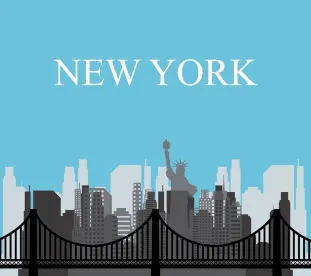“Cowboy” Joe West is the best-known, longest-serving, and (to some) most reviled umpire currently active in Major League Baseball. For example, in 2010 he was named the second-worst MLB umpire, barely losing to CB Bucknor in a call at the plate that today could only be decided by the replay umpires in New York. At least he has his part-time country music career to fall back on. But West recently hit a home run in court, winning a $500,000 defamation verdict against a former player who accused him of trading a generous strike zone for personal favors. The court’s decision illustrates an important, but seldom-used way to prove damages in a defamation case.
The case arose in 2019 when Paul Lo Duca, a retired catcher, appeared on a sports podcast and told a story about a conversation he supposedly had about West with former Mets pitcher Billy Wagner. According to Lo Duca:
He [i.e., Wagner] literally throws 10 pitches and strikes out three guys; Joe rings up all three guys; eight out of the nine pitches were at least 3 to 4 inches inside, not even close. Guys were throwing bats and everything, Joe walks off the field. We get back into the clubhouse, and I’m like, “What the f—k just happened just right now?” And Wagner just winks at me, I’m like, “What’s the secret?” He’s like, “Eh, Joe loves antique cars, so every time he comes in town, I lend him my ‘57 Chevy so he can drive it around, so then he opens up the strike zone for me.”
West sued Lo Duca for defamation, arguing that the story was false and would hurt his chances of being inducted into the Hall of Fame. As noted in the court’s decision, “[a]s of the end of the 2020 season, [West] had umpired in 5,345 Major League Baseball games, surpassed only by the legendary umpire Bill Klem, who umpired in 5,375 games, and was the first umpire to be inducted into the Baseball Hall of Fame in Cooperstown.” West is “on track to break Klem’s record during the 2021 season.” But, West feared, with a cloud hanging over his “integrity and character” because of Lo Duca’s podcast, “he might not be elected for induction into the Hall of Fame for the same reasons as otherwise excellent players ‘Shoeless’ Joe Jackson, Pete Rose, and Barry Bonds had or have not been elected.”
Lo Duca defaulted when the case was filed and thus lost the ability to defend his remarks on the merits. West nonetheless offered compelling proof that the story was false. According to the record books, for example, he had never called three straight strikes in any game in which Wagner pitched to Lo Duca. And according to West, “during 2006 and 2007, the two years that Lo Duca played for the New York Mets with Billy Wagner, Joe West was the home plate umpire for a game between the Philadelphia Phillies and the Mets only once, Billy Wagner did not pitch at all, and the game ended on a home run, not on called strikes.”
Because of the default, the only issue left to decide was damages, and the court held a full evidentiary hearing on that issue. West argued that in addition to damages for mental anguish and emotional distress, he should be awarded damages for money that he plans to spend, but has not yet spent, on “expenses related to advertising and public relations that are meant to repair” his reputation in the eyes of Hall of Fame voters.
Courts are usually reluctant to award damages for future expenses to mitigate a defamatory publication for two reasons. First, future expenses are inherently speculative. Second, if the reputational harm really needs mitigation, why haven’t the mitigation efforts already taken place? But West had compelling responses to these objections that he presented with highly detailed expert testimony. He retained experts in digital forensics, reputation management, and public relations to show the extent to which Lo Duca’s claims were still present on the internet today, as well as to give a highly detailed plan to “push down” those negative stories and “overwhelm” the information market with positive stories about him. And, significantly, the public relations expert also testified that those efforts would be “ramped up at various times” in the future, such as when West “breaks the record for the most games as an umpire and when he retires.” The Court was convinced by this testimony and awarded West $250,000 for “past mental anguish and emotional distress” as well as an additional $250,000 to fund the public relations campaign the expert described.
Future mitigation damages may be recovered in a defamation action. But, as Cowboy Joe’s case illustrates, there must be compelling evidence, preferably from credible experts, to explain why the mitigation efforts have not yet taken place.




 />i
/>i

